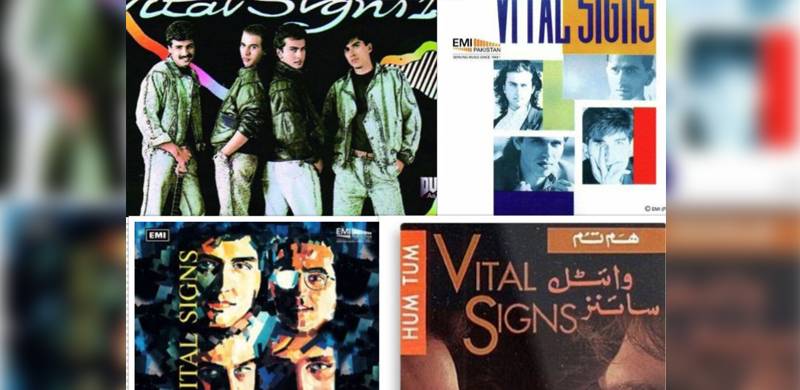
March 1, 2019 will mark the 30th anniversary of the release of the first Vital Signs album. The release of the album marked the beginning of a brand new era of pop music in Pakistan. It came almost immediately after the demise of a reactionary dictatorship in the country and on the eve of the sudden end of the ‘Cold War’ (between the United States and the Soviet Union).
In the blink of an eye, international politics was turned on its head, and, to some extent, so did the politics of Pakistan. The end of a dictatorship in August 1988 was followed by a general election which was won by the Pakistan People’s Party (PPP) led by then 35-year-old Benazir Bhutto.
The Signs had first emerged with a song in August 1987. But by the time they released their first album in March 1989, they were already spearheading a new wave of pop acts who quickly began to eclipse established pop artistes of the 1980s, such as Nazia & Zoheb, Alamgir, Muhammad Ali Shehki, Tehseen Javed, Saleem Javed, Khaled Waheed, etc.
From 1977 till 1988, these acts had to endure severe restrictions and conditions placed on them by the dictatorship of General Zia-ul-Haq. But to their credit they somehow managed to keep Pakistani pop afloat.
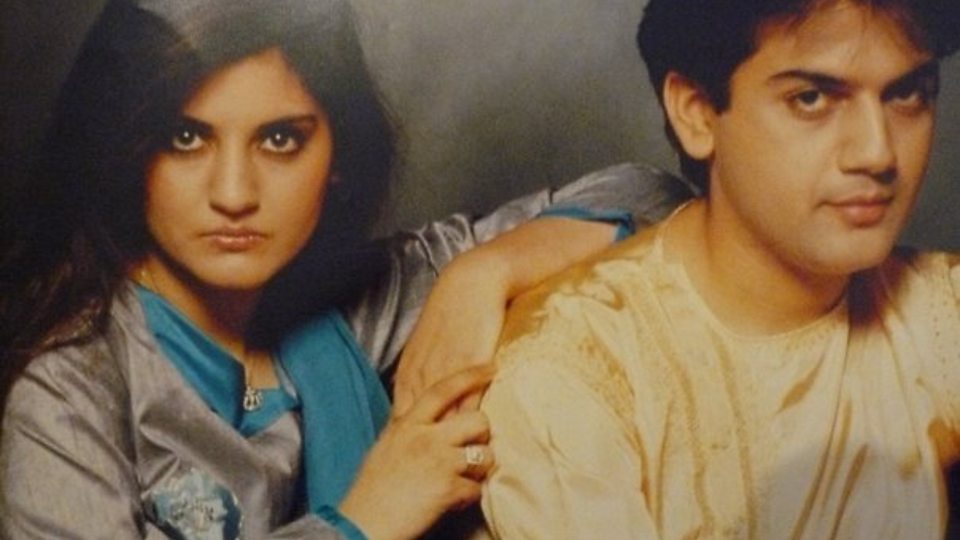
Nazia & Zoheb.
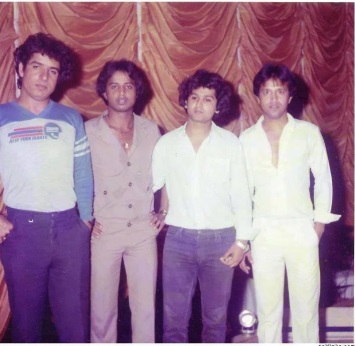
The old guards: Shaikhi, Tehseen Javed, Saleem Javed and Alamgir.
Even though the wave led by the Signs carried numerous new pop acts and even more continued to emerge till the late 1990s, the band succeeded in retaining its commercial and creative status as the country’s leading pop act till its demise in 1998.
This piece celebrates the decade of the Signs as a path-breaking band through the four albums that they recorded, beginning with their debut album released exactly 30 years ago.
Vitology: The VS albums
**** Excellent
*** Good
** Average
* Poor
VS-1
Released: 1 March, 1989.
Label: EMI-Pakistan
Rating: ***
Personnel: Junaid Jamshed (Vocals/Melodies); Rohail Hyatt (Keyboards/Synthesizers/Drum-Machine); Shahzad Hassan (Bass); Salman Ahmad (Guitar); Shoaib Mansoor (Lyrics/Producer).
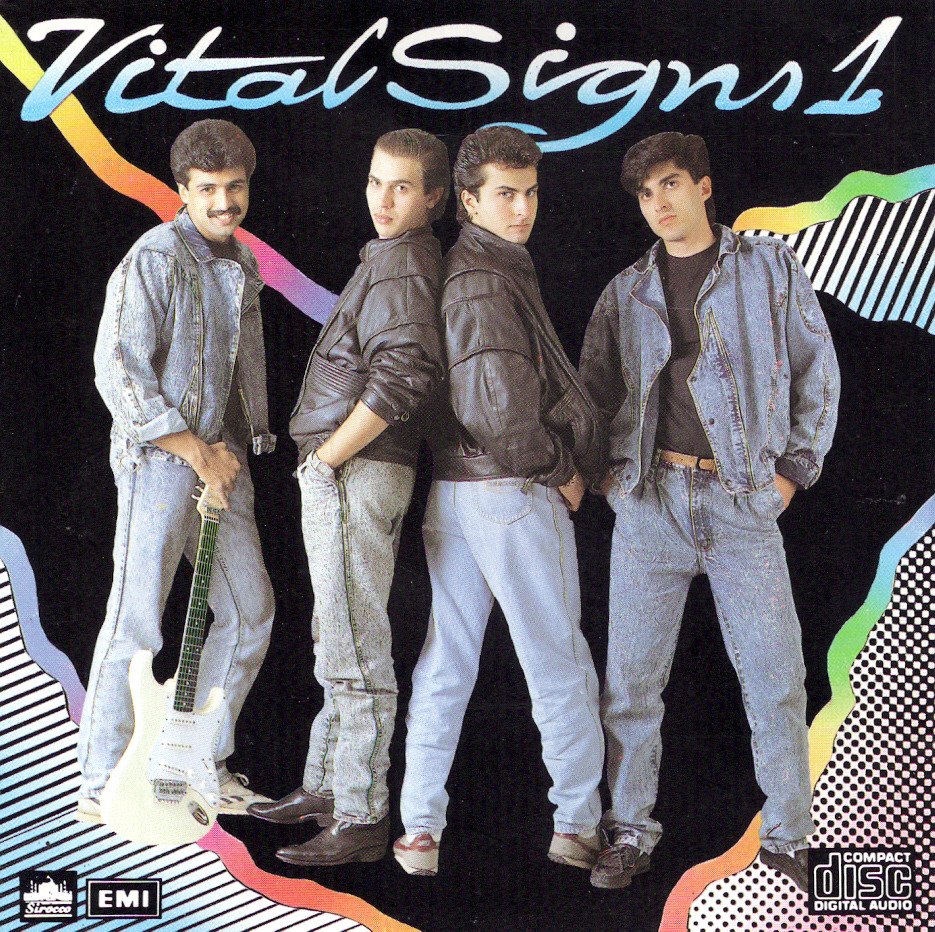
This is the album that proudly defines the beginnings of Pakistani pop music as we know it today. Eschewing the largely one-dimensional sonic set-up of the pre-Signs local pop, the Signs stretched the home-grown pop dynamic by adding slick 'synth-pop' allusions, tastefully weaved together with inspirations gathered from the melodic ‘filmi music’ of composers Sohail Rana and Robin Ghosh and vocalists such as Alamgir.
The resultant sound is a breed apart compared to what had come in the name of Pakistani pop music before. Kicking-off with the conceptually formulaic but highly infectious, Dil Dil Pakistan, the album then confidently embraced teeny-bop trappings with Gorey Rang Ka Zamana, Ankehn, and Samjana.
But this is just the surface stuff dished out to attract a new generation of teenagers who had rolled into a new socio-political reality at the violent end of the repressive Zia-ul-Haq dictatorship.
The overall tone of the album is thus optimistic, reflecting the sanguinity of a generation that had entered a new political and cultural era. But lying beneath the bubbly teen anthems is the heart of the album, melodically manifested by three outstanding numbers, Doh Pal Ka, Musafir and Yeh Shaam.
Doh Pal Ka is a standard pop-rock number, but without the pretentious bombast of 1980s “hair-metal.” The galloping tune never loses sight of melody.
Musafir on the other hand is dripping with melodic appeal, displaying the early beginnings of the Signs' melancholic side. A highly underrated number, Musafir sees vocalist Junaid Jamshed demonstrate impressive vocal dexterity, as keyboard/synth-player, Rohail Hayaat takes the opportunity to play around with ‘Floydian’ atmospherics.
Yeh Shaam is cut from the same cloth and is even more brooding in mood. All said, much of the album hasn’t dated very well, though.
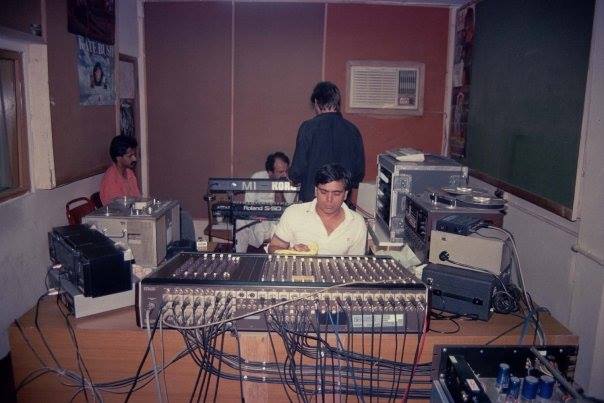
In-house engineers at work during the recording of VS-1 at EMI-Pakistan’s studio in late 1988.
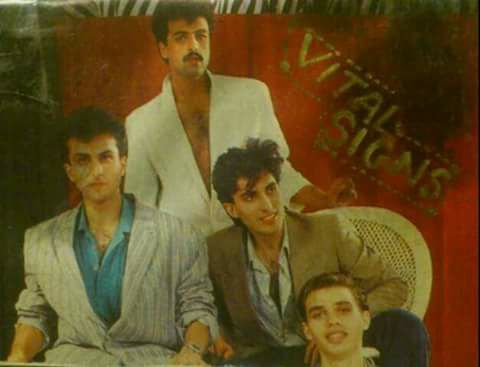
The Signs during an April 1989 shoot.
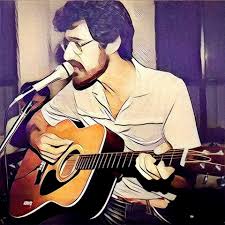
Nusrat Hussain composed the band’s first ever single and hit, Dil Dil Pakistan. However, he quit the Signs just before the recording of VS-1.
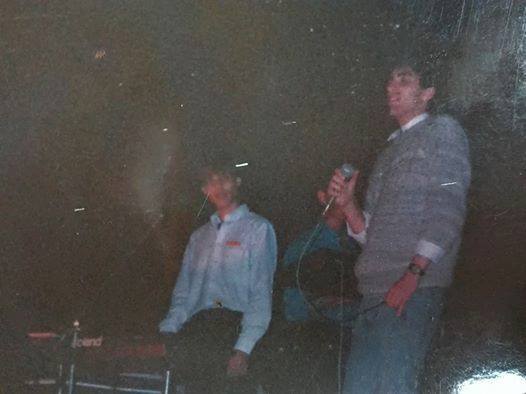
The VS playing at a concert in August 1989 at Karachi’s (now defunct) Rex Auditorium.
‘Doh Pal Ka Jeewan.’
https://www.youtube.com/watch?v=DJKZCFJxOek
‘Yeh Shaam.’
https://www.youtube.com/watch?v=Rj_9xxnUdeI
VS-2
Released: 3 March, 1991.
Label: EMI-Pakistan
Rating: ****
Personnel: Junaid Jamshed (Vocals/Melodies); Rohail Hyatt (Synthesizers/Drum-Machine/Melodies/SFX/Production); Shahzad Hassan (Bass); Rizwan-ul-Haq (Guitars); Shoaib Mansoor (Lyrics).
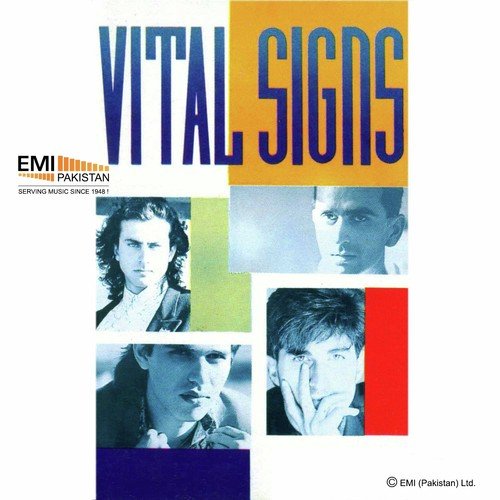
The huge commercial success of VS-1 propelled the Signs into becoming the land’s newest pop sensations. But sudden stardom also came at a cost, as fissures started to appear in the band's still fragile armor.
Tensions emerging from Salman's extroverted persona and Rohail's introverted disposition saw the exit of Ahmad who was replaced by Rizwan-ul-Haq.
Then Junaid too threatened to leave, wanting to pursue engineering as a profession. However, out of the chaos and tension emerged a brilliant album.
The stand-out tunes are many, led by Ajnabi, Hum Rahey Rahi, Nazar, and Yadh Rakhna. Each track is a convincing testament to melodically rich pop music; but this time offered on a platter of brooding sounds and words. Each member of the band seems to be in top form, especially vocalist Junaid and synth-player and producer, Rohail. New guitarist Rizwan-ul-Haq feels right at home plucking out melodic riffs and leads paced perfectly with the album's somber mood.
Bassist Shahzad Hassan too comes into the picture, confidently striding alongside the thumping drum-dominated dynamics of Bazaar and the foreboding, Aisa Na Ho. Aisa Na Ho and Mera Dil Nahi Available were the band’s initial foray into political commentary. Aisa Na Ho alludes to the deadly ethnic clashes which erupted in Karachi in 1990, whereas the cheeky Mera Dil Nahi Available – though delivered as a bouncy love song about a flirt – is actually about someone telling the United States to go find another client state.
VS-2 has dated well. It still sounds fresh and remains to be a perennial gem and a definite Pakistani pop classic.
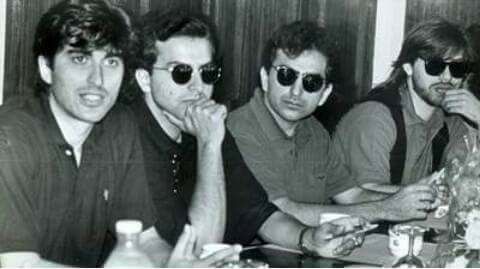
VS 1991.

JJ during his (thankfully) brief biker phase. September 1991.
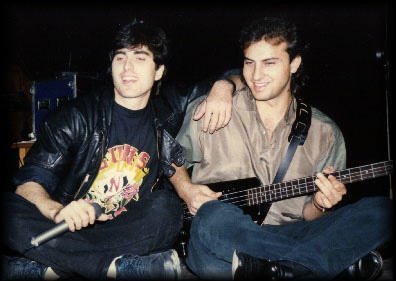
JJ and Shahzad engage the crowd during a VS concert in 1992.
‘Ajnabi’
https://www.youtube.com/watch?v=zI8V7eEaEZ4
‘Hum Rahe Rahi.’
https://www.youtube.com/watch?v=I_syHMm5N8s
‘Aisa Na Ho’
https://www.youtube.com/watch?v=feJ0tivJklw
Aitebar
Released: January 1993.
Label: EMI-Pakistan
Rating: **
Personnel: Junaid Jamshed (Vocals/Melodies); Rohail Hyatt (Synthesizers/Drum-Machine/Melodies/Production); Shahzad Hassan (Bass); Rizwan-ul-Haq (Guitars/Piano); Shoaib Mansoor (Lyrics).
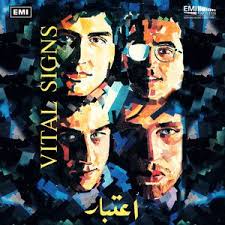
The year 1993 was perhaps the most stable period in the band's career. Maybe that's why it decided to pull itself out from the forlorn disposition it found itself in on VS-2 and create an album that was closer in sound and mood of VS-1.
But the attempt to revert back to happier music was largely a disappointment. Apart from the lovely title-track, Aitebar and the meaty Yeh Zameen there's not much else on the album other than disposable pop fluff, probably recorded on the behest of the band’s sponsor Pepsi which wasn’t all that pleased by the brooding nature of VS-2.
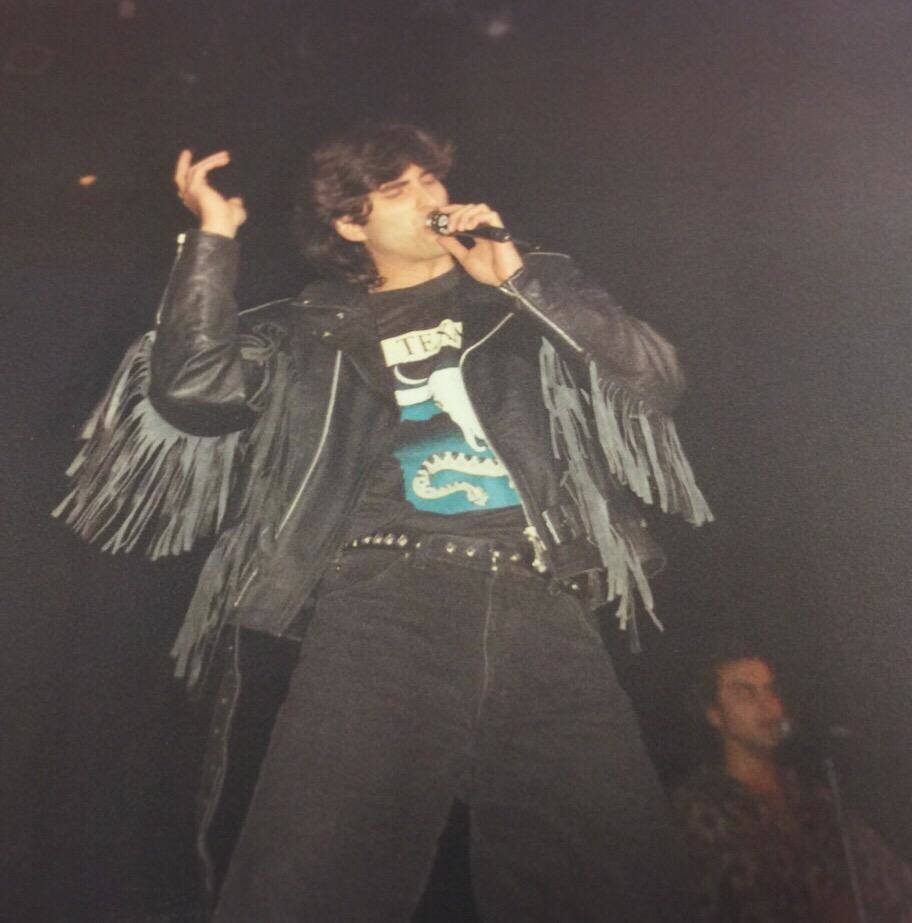
VS in concert, 1993.
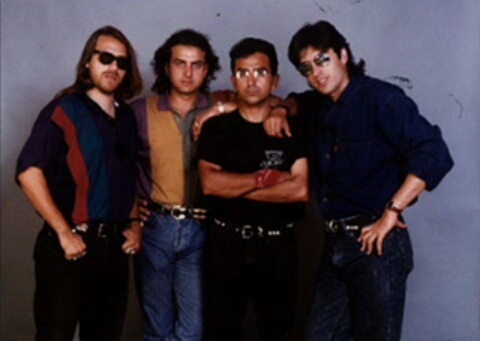
Photo shoot, 1993.
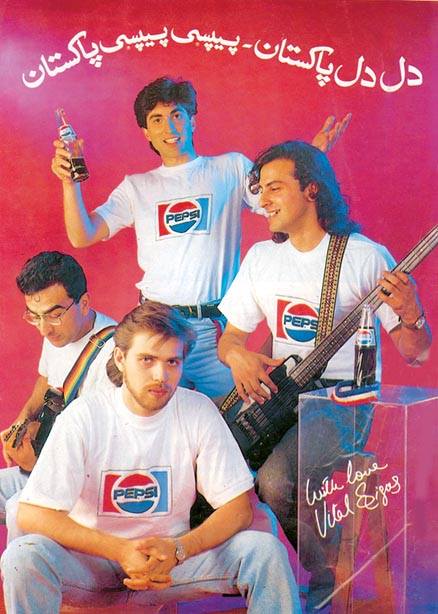
1994.
‘Aitebar’
https://www.youtube.com/watch?v=1qcWXa2J1T4
‘Ye Zameen.’
https://www.youtube.com/watch?v=u804HGuCltA
Greatest Hits
Released: 1994.
Label: EMI-Pakistan
Rating: **
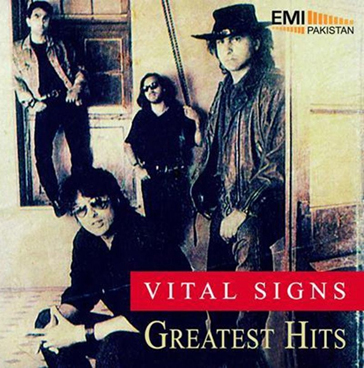
A formulaic greatest hits package but one that missed out on some important VS moments. It was released as a stop-gap measure because the Signs failed to deliver a new album in 1994 – mainly due to infighting and tensions between band members. This saw Rizwan-ul-Haq being shown the door, replaced by Aamir Zaki.
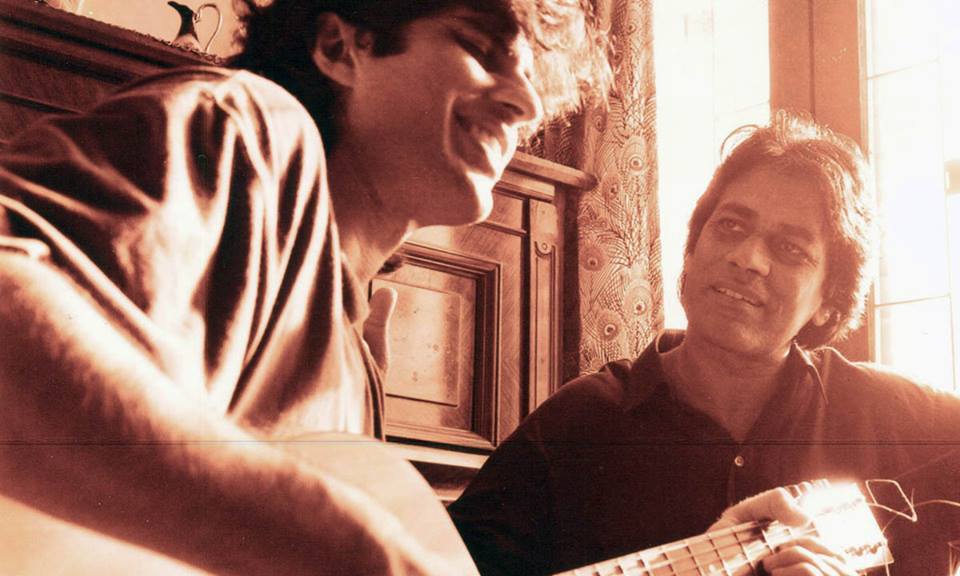
JJ with the band’s mentor and main lyricist, Shoaib Mansoor.
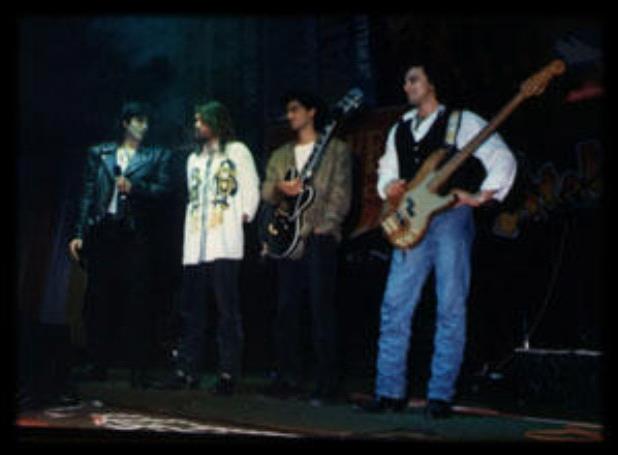
The Signs in Dubai. In mid-1994 guitar prodigy Aamir Zaki joined the Signs. By early 1995 he was gone.
Hum Tum
Released: January 1995.
Label: VCI.
Rating: ****
Personnel: Junaid Jamshed (Vocals/Melodies); Rohail Hyatt (Synthesizers/Drum-Machine/Rhythm Guitar/Melodies/SFX/Production); Shahzad Hassan (Bass); Asad Ahmad (Guitars); Aamir Zaki (Guitar on two songs); Shoaib Mansoor (Lyrics).
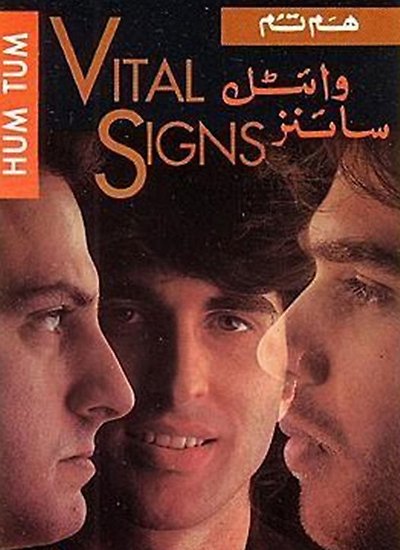
This was a formidable album which, like VS-2, emerged from tense intra-band turmoil. Rizwan was shown the door, replaced by guitar whiz, Aamir Zaki, who after recording just two songs left. Former Awaz guitarist, Assad Ahmed was taken on board. Also, Junaid, though at the peak of his singing abilities, had started to show the first signs of an emotional and existential crisis that would eventually see him quit music and take up preaching some six years later.
And if we (gladly) skip the first two songs of Hum Tum — especially the cheerfully deluded, Hum Jeetain Gay — each and every other song on the album is an overt allusion to a band haplessly melting away towards an eventual break-up. But what a melting away it was.
Quite like VS-2, the mood on Hum Tum is somber, but more stoic, as Junaid brilliantly delivers Shoaib Mansoor's words of fatalistic resignation, misunderstanding and unrequited emotions on gems such as, Jana, Hum Tum, Dair Hogai and Namumkin.
Rohail paints the melodies and production with loads of sonic allusions to Floydian landscapes, and also driving one of the funkiest VS tunes in the shape of the epic, Main Chup Reha. Asad's playing is right up there with the best that scene had to offer.
The album's musicianship, production and vocals proved that VS had hit a peak and would have been able to dish out at least a few more decent albums. But, alas, that was not to be.
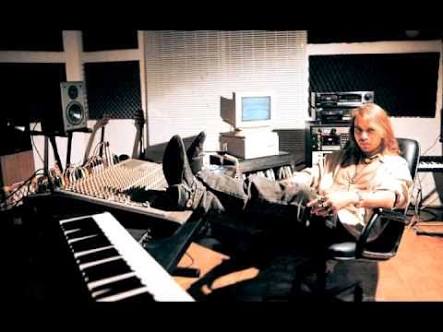
Rohail at his home studio during the recording of Hum Tum.
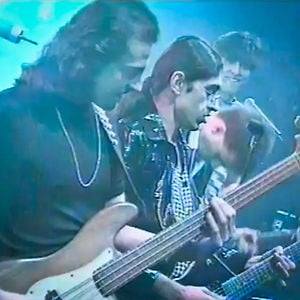
The Signs in the UK with Asad Ahmad on guitar.
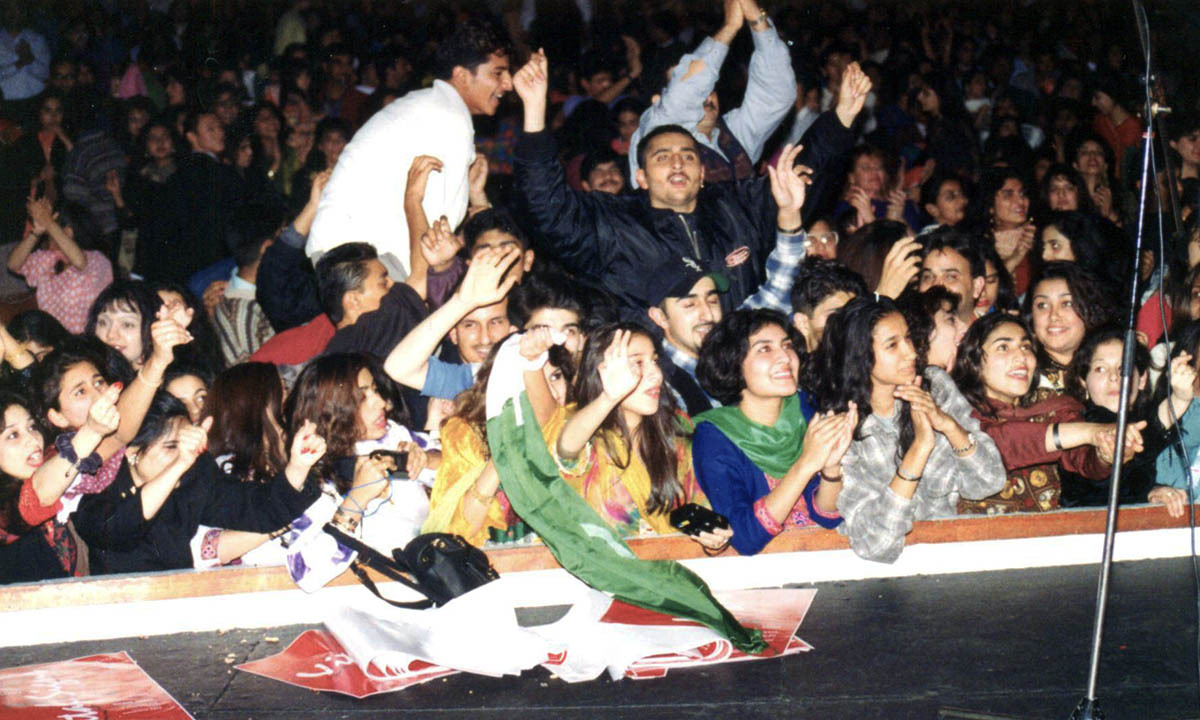
A 1996 VS concert at a college in Karachi.
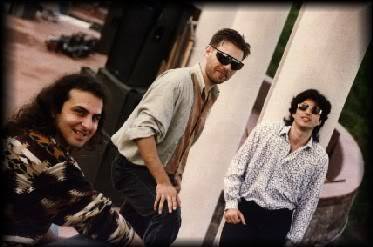
And then there were three: The Signs in 1998. The band broke up soon after this photo was taken.
‘Jana, Jana’
https://www.youtube.com/watch?v=obZ61GBhaW4
‘Hum Tum’
https://www.youtube.com/watch?v=3JZFV9G90jU
'Mein Chup Raha’
https://www.youtube.com/watch?v=XNqAvp8_lPQ
Re-Mixes
Released: 1998.
Label: VCI.
Rating: *
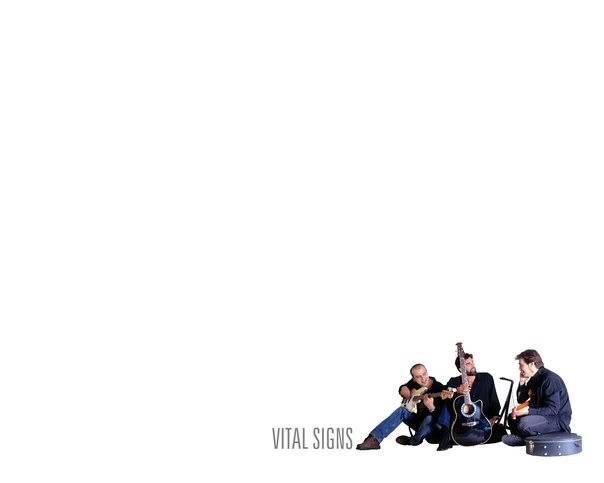
An interesting idea, but one that just fails to take hold as most songs here are reduced to tin-like dance routines and inexplicably regulated to the obnoxious ‘jhankaar’ territory. Only the remix version of Dil, Dil Pakistan, and the last recorded VS song, ‘Maula’ escape the mediocrity -- but only just.
